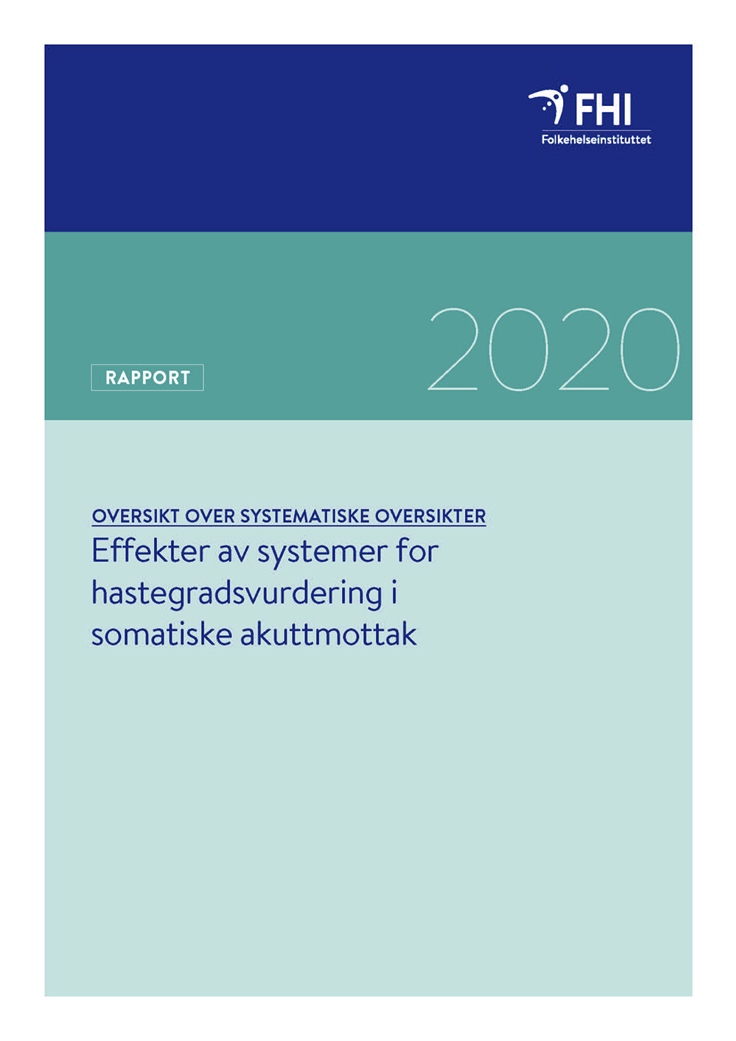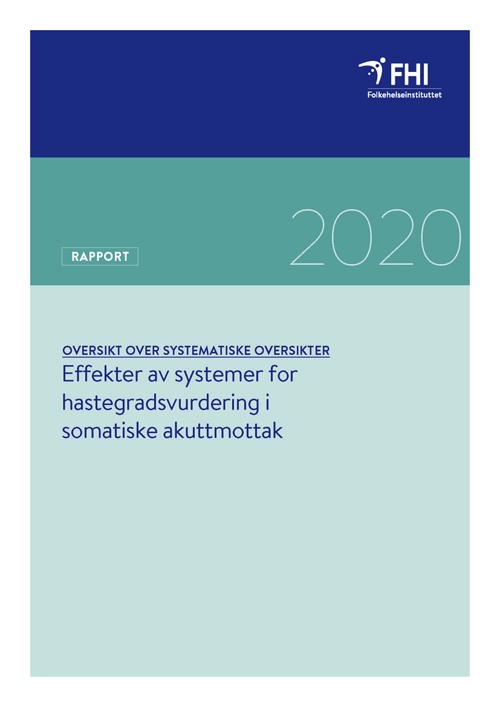The effect of triage systems for patients in emergency and accident departments: An overview of systematic reviews
Systematic review
|Published
The purpose of this overview of systematic reviews was to examine the effects of different triage systems, with or without subsequent monitoring options, in A&E departments on patient, organisational, societal and employee outcomes.
Key message
The Health Services aim to provide adequate and efficient health services at all levels and for everyone. Accident and Emergency Departments (A&E) receive patients in acute need of care. The patient is triaged and monitored according to his/her immediate needs. The purpose of this overview of systematic reviews was to examine the effects of different triage systems, with or without subsequent monitoring options, in A&E departments on patient, organisational, societal and employee outcomes.
- One systematic review studied the effect of Manchester Triage System compared to other triage systems or no systems. The available evidence is too uncertain to determine if the use of Manchester Triage System has effect on time to treatment.
- We did not identify any systematic reviews examining the effects of triage systems on mortality, morbidity, time to tentative diagnosis at A&E, time at A&E, patient satisfaction, cost of monitoring, health personells’ job satisfaction or health personells’ sick leave.
- We excluded 15 reviews looking at triage systems accuracy for patients with different medical diagnosis.

